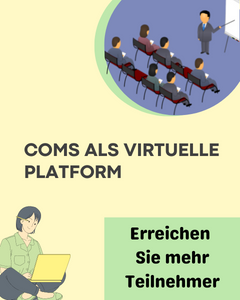Startseite / Konferenzkalender / Informatik / Implementierung und Anwendungen von künstlicher Intelligenz / Deutschland
Konferenzen > Informatik > Implementierung und Anwendungen von künstlicher Intelligenz > Deutschland
Wählen Sie ein Land aus
China (1) Deutschland (10) Griechenland (3) Großbritannien (4) Indien (1) Italien (1) Kanada (2) Kroatien (1) Schweiz (1) Spanien (1) Türkiye (1) Vereinigte Staaten (4) Zypern (2)
Deutschland
1
Dagstuhl-Seminar — Tensor Factorizations Meet Probabilistic Circuits
01. Mär 2026 - 06. Mär 2026 • Schloss Dagstuhl, Deutschland
Eintrags-ID:
1671287
Webseite:
2
KI Bootcamp — Generative AI für Angular-Entwickler:innen - KI Bootcamp | März 2026 München
19. Mär 2026 - 20. Mär 2026 • München, Deutschland
Eintrags-ID:
1687064
3
Dagstuhl-Seminar — New Trends in Clustering
22. Mär 2026 - 27. Mär 2026 • Schloss Dagstuhl, Deutschland
Eintrags-ID:
1671337
Webseite:
4
Dagstuhl-Seminar — Driver State Modelling: Cognitive and Computational Challenges
22. Mär 2026 - 27. Mär 2026 • Schloss Dagstuhl, Deutschland
Eintrags-ID:
1671358
Webseite:
5
Dagstuhl-Seminar — Autonomous AI Agents in Computer Security
12. Apr 2026 - 17. Apr 2026 • Schloss Dagstuhl, Deutschland
Eintrags-ID:
1671340
Webseite:
6
Dagstuhl-Seminar — Rethinking Research Methods in HCI: New Perspectives for and with AI Tools
26. Apr 2026 - 30. Apr 2026 • Schloss Dagstuhl, Deutschland
Eintrags-ID:
1671478
Webseite:
7
EEVTMS — European EV Thermal Management Summit & Show 2026
02. Jun 2026 - 03. Jun 2026 • Düsseldorf, Deutschland
Eintrags-ID:
1693089
Webseite:
8
Dagstuhl-Seminar — Open Music Data for Music Processing Research
28. Jun 2026 - 03. Jul 2026 • Schloss Dagstuhl, Deutschland
Eintrags-ID:
1671550
Webseite:
9
Dagstuhl-Seminar — Explainable AI in Energy and Critical Infrastructure Systems
26. Jul 2026 - 29. Jul 2026 • Schloss Dagstuhl, Deutschland
Eintrags-ID:
1671643
Webseite:
10
Forschungstreffen — Door: Testseminar 1!
17. Dez 2026 - 22. Dez 2026 • Schloss Dagstuhl – Wadern, Deutschland
Eintrags-ID:
1626145
Webseite:
Conference-Service.com stellt der Öffentlichkeit ein Kalendarium wichtiger Konferenzen, Symposien und sonstiger Tagungen im wissenschaftlich-technischen Bereich zur Verfügung. Obwohl das Verzeichnis mit großer Sorgfalt zusammengestellt und ständig aktualisiert wird, weisen wir auf die Möglichkeit von Fehlern ausdrücklich hin. Bitte vergewissern Sie sich immer beim Veranstalter, bevor Sie über die Teilnahme oder Nichtteilnahme an einer Konferenz entscheiden.
Stand vom 9. Januar 2026



